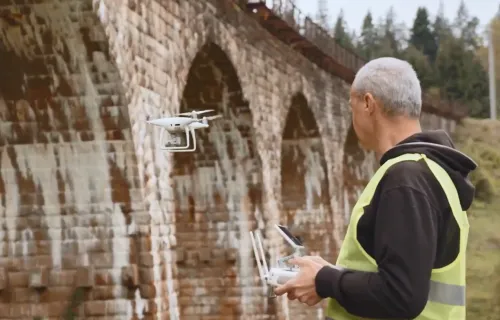As the new Head of AI for CGI UK, these first few months of 2024 have provided me with an opportunity to consider the potential of AI after the whirlwind of last year. Will 2023’s AI advances quickly become mainstream? Will the hype subside? Have we reached an inflection point where the pace of change just continues to accelerate? I can’t wait…and I wanted to write about the areas I think AI can have real impact on productivity or change the way we work.
Deciding on a plan for AI for an organisation can feel overwhelming right now. It’s clear that any such plan involves much more than just flicking a switch to a new way of working. But there are some quick and effective ways to narrow down the options. Like any other digitisation plan, it’s important to start with a well-defined business problem and retain clear sight of a return on investment. Be clear about the ambition or the specific problem you are trying to solve; whether that is top-line growth by accelerating time to market, bottom-line growth through specific efficiency gains, improved customer satisfaction, or a cleaner, greener service. I fear that we will see some of the projects initiated last year fall short of expectations because they lacked measurable objectives and milestones to work towards to track progress.
Your employees versus AI
One area where AI is showing lots of promise is in handling unstructured data. The ability of AI to understand language and meaning makes it well-suited to addressing some of the challenges that some industries have struggled with for years.
For example, more and more companies face immense volumes of customer contacts through multiple channels: phone, email, online and chat. With the help of AI, we have been able to look inside emails and documents to find specific information and match it against rules for where automated responses can be used. This helps employees focus on the business while also reducing manual processing.
With employees still in mind, another area where AI can make a difference is by locating and summarising relevant information hidden within complex unstructured documents, perhaps in response to an enquiry from a customer, investor or even a regulator. We have proven that AI can reliably improve the effectiveness of these processes to find the right information while freeing up time for your staff. This can also be extended to using natural language questions to return insights from messy data stores, reducing the need for building complex query code.
Your customers versus AI
Improving customer experience is paramount for success. With the latest advancements in conversational AI, driven by the understanding of language and meaning, companies now can redefine the customer experience and differentiate themselves through increased personalisation, more targeted relevant marketing and 24/7 instant support.
By providing access to the right data and underlying systems, it is possible to have more natural conversations with customers and guide them to the answers they need. This technology can also be used to speed up the resolution of customer contact centre queries and dedicated helpdesks, and proactively provide agents with the information they need when they need it.
So what does it all mean?
It’s starting to become apparent that the opportunities are limitless, and that it’s important to approach AI projects with wider consideration. Compliance, security, regulation evolution, ethics, and potential bias of these tools must be taken into account, along with guidelines or stricter guardrails to help employees understand how to use the tools safely.
Your stakeholders, whether they are your employees or customers, must be very much front of mind for any project involving AI. I have no doubt that AI opportunities and strategies will ramp up this year, and humans will be needed in the loop to monitor performance and step in when the AI doesn’t know what to do or gets it wrong. It does happen. When the plan is to use AI as a potential advisor or information source, winning the trust of those employees working with these new tools will be important for success.
Know the limits of your resources and understand how ready your organisation is to start using AI. Budget, technical expertise, and data availability are all important, and one size does not fit all. Get input from the different departments (IT, marketing, finance and operations) who will be using or impacted by the AI tool. Consider their needs, concerns, and technical expertise to ensure buy-in and successful implementation. Investment in AI training and education will be crucial, and it will take time for new tools to become embedded and for using them to be second nature. Encourage collaboration between teams and across disciplines to share best practice as we all discover the possibilities for becoming more agile and effective.
I believe that rather than using AI as just another digital sticking plaster placed over old legacy systems and processes, we need to be smarter in how we use these new tools to make a difference – let’s take the opportunity to be mindfully innovative. By combining AI with better access to data, new sources of data, and different ways to interact with customers, we can rethink the way we provide products and services.
AI is not new, but the recent rapid developments around generative AI resulted in this surge of excitement and the wider realisation of the positive impact for areas such as healthcare and education. Now we are looking at how AI use cases can be responsibly implemented, and I am so ready to be a part of these developments for CGI and our clients. It is not an easy plug-in; like all transformation programmes these things are complicated, starting with assessing the quality of the organisation’s data and the systems around it. If you’d like to discuss this further or find out more about our approach, please get in touch.






